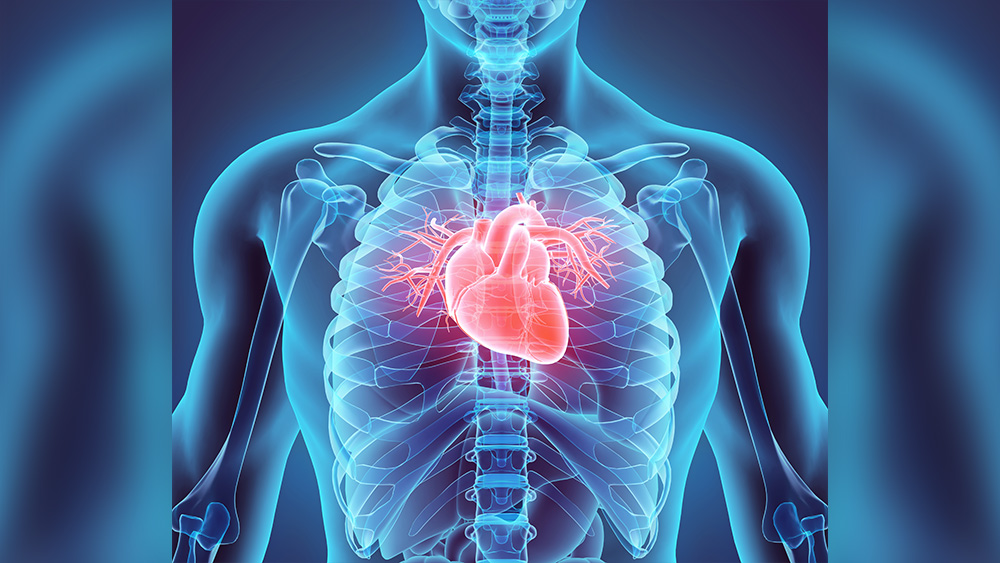
Inflammation of the heart and other organs can be a complication of COVID-19, the respiratory disease caused by SARS-CoV-2.

Inflammation of the heart and other organs can be a complication of COVID-19, the respiratory disease caused by SARS-CoV-2.
What you need to know
Studies have shown that SARS-CoV-2, the virus that causes COVID-19, can directly infect the brain, the lungs, and other tissues. Less is known about how it affects the heart’s arteries, and scientists have not fully understood why people with COVID-19 have greater risks for heart disease and stroke up to a year after infection.
In a study supported by the National Heart, Lung, and Blood Institute; the National Institute of Allergy and Infectious Diseases; and the National Institute of Diabetes and Digestive and Kidney Diseases, researchers found that SARS-CoV-2 can directly infect coronary arteries and cause the fatty, or atherosclerotic, plaque inside to become highly inflamed, which increases the risk of heart attack and stroke.
What did the researchers do?
In the study, researchers focused on older people with the fatty buildup called atherosclerotic plaque who had died from COVID-19. After confirming that SARS-CoV-2 was present in both the heart’s arteries and the plaque, the researchers took arterial and plaque cells — including virus-fighting, cholesterol-removing white blood cells called macrophages and “foam cells,” which are formed when macrophages become overloaded with cholesterol — from healthy patients and infected the cells with SARS-CoV-2 in a lab dish. The virus also infected those cells and tissues.
The researchers saw that the virus infects macrophages more than other arterial cells. Foam cells, which could not easily clear the plaque, were even more susceptible to infection. That suggests that foam cells may act as a reservoir of SARS-CoV-2 in the atherosclerotic plaque. More plaque buildup, and therefore more foam cells, could intensify or lengthen COVID-19 symptoms.
When the researchers studied the inflamed plaque, they also found that the infected macrophages and foam cells released cytokines — molecules that increase inflammation and cause even more plaque to form.
Why is this research important?
These findings pertain to strains of SARS-CoV-2 that circulated in New York City between May 2020 and May 2021. And because the study involved only a small cohort of older individuals who had atherosclerosis, the results cannot be generalized to younger, healthy individuals.
However, because the virus infects and replicates in the arteries no matter the levels of plaque, the findings could have broader implications for anyone who gets COVID-19. They may also help explain why some people who get COVID-19 have a greater chance of developing heart disease — or, if they already have it, developing more heart-related complications.
Ultimately, the researchers say, this information will inform future studies on both acute COVID-19 infection and Long COVID.
Where can I go to learn more?
Long-Term COVID-19 Study Looks at Older Adults With Chronic Conditions
- Adults age 55 and older with chronic conditions have been disproportionately affected by COVID-19.
Inflammation Pattern in the Brain May Cause Many Long COVID Symptoms
- In addition to causing long-lasting organ damage, SARS-CoV-2 can set off a pattern of brain inflammation that may be linked to Long COVID symptoms.
Mapping the COVID-19 Cell Atlas
- Two studies give a clearer picture of what happens in the cells and tissues of the lungs, heart, and other organs in people with severe COVID-19.
Sources
Eberhardt, N., Noval, M. G., Kaur, R., Amadori, L., Gildea, M., Sajia S., Das, D., Cilhoroz, B., Stewart, O., Fernandez, D. M., Shamailova, R., Guillen, A. V., Jangra, S., Schotsaert, M., Newman, J. D., Faries, P, Maldonado, T., Rockman, C., Rapkiewicz, A., Stapleford, K. A., . . . Giannarelli, C. (2023). SARS-CoV-2 infection triggers pro-atherogenic inflammatory responses in human coronary vessels. Nature Cardiovascular Research, 2, 899–916. https://www.nature.com/articles/s44161-023-00336-5

News and Stories
Read stories about the efforts underway to prevent, detect, and treat COVID-19 and its effects on our health.
 An official website of the United States government
An official website of the United States government

